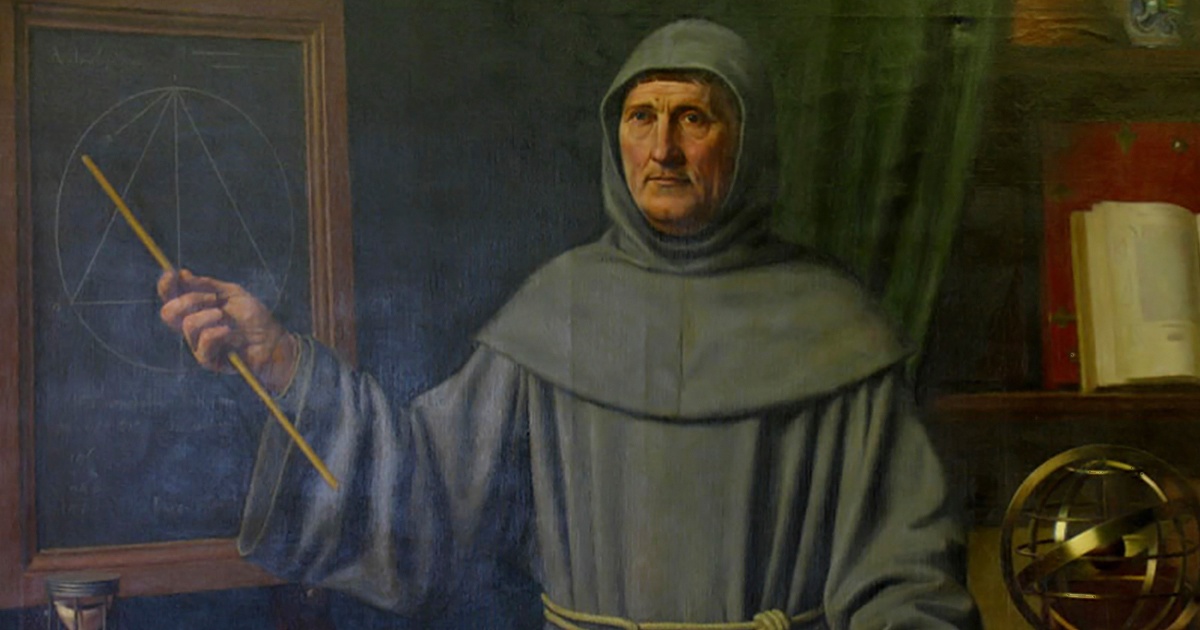Have you ever woken up on November 10th and thought to yourself: “whoa, is that some extra appreciation I’m feeling?” If you haven’t thought that yet, start this year, because November 10th is International Accounting Day — the day in which people across the globe appreciate all the accountants in their lives. It only comes around once a year so be sure to milk it for all it’s worth.
But why today?
November 10th marks the 523rd anniversary of the publication of Summa de Arithmetica by Luca Pacioli (AKA the Father of Accounting). His book contains the first published description of double-entry bookkeeping — a major step forward in more accurate financial recordkeeping.
As fascinating as the textbook is, its author may be even more interesting. Pacioli was an Italian Renaissance friar who published many groundbreaking books. One of his works is deemed the “foundation of modern magic and numerical puzzles.” In it, he covers the basics of card tricks, coin-dancing, and fire-eating.
One of his works is deemed the “foundation of modern magic and numerical puzzles.” In it, he covers the basics of card tricks, coin-dancing, and fire-eating.
Also, not to name drop, but Pacioli hung out with and taught mathematics to Leonardo Da Vinci (you might have heard of him). The two lived and worked together for over eight years and collaborated on a book about chess strategy.
Accounting goes way back
While we love our fire-eating friar, accounting goes back much further, with a rich history as one of the major building blocks of human civilization. Accounting has been around in some form or another ever since humans decided that keeping track of their stuff was a good idea.
The earliest records of accounting date back to around 4,000 B.C. in ancient Mesopotamia where archaeologists have found records of expenditures and goods received and traded.
Many theorize that accounting is one of the main contributors to why we now have written language, counting, and money. Clearly making sure you get every dime you’re owed has been a major motivator for humanity. And it’s a good thing too, otherwise, you’d be out of a job, and humans may never have learned abstract counting or advanced writing, you know, minor stuff.
Many theorize that accounting is one of the main contributors to why we now have written language, counting, and money.
Look how far we’ve come
Since its early days in ancient Mesopotamia, accounting has evolved through every civilization. The Ancient Egyptians adapted receipt records from clay to the much more practical papyrus. Advanced recordkeeping contributed to the progress of engineering marvels such as the Parthenon in Ancient Greece. Rome used principles of accounting to develop a commerce and tax system that helped them build a conquering global empire. And in the 19th century, Queen Victoria moved accountancy towards the modern, organized profession we know today when she signed a Royal Charter making accounting an officially recognized profession.
Where we’re going we don’t need data entry
The future of accounting is bright. Despite all the automation that’s steamrolling other industries, accounting will live on and will gain a greater focus on consulting. Accountants will spend less time on the busywork of inputting data and more time using their expertise to interpret and advise, which is far more valuable to clients and more lucrative for you.
Next time you’re at a dinner party and someone accuses you of having a “boring job,” kindly remind them that your industry is largely responsible for the foundation of modern civilization, whose founding father was a fire-eating, Renaissance friar who played chess with Da Vinci on the weekends.
If that little bit about the “future of accounting” piqued your interest, then you’re in luck, we wrote a whole ebook on it: 8 Outdated Areas of Your Tax Practice (And How to Modernize Them). Download it for free and see where you could update your practice for the future.







Get Our Latest Updates and News by Subscribing.
Join our email list for offers, and industry leading articles and content.